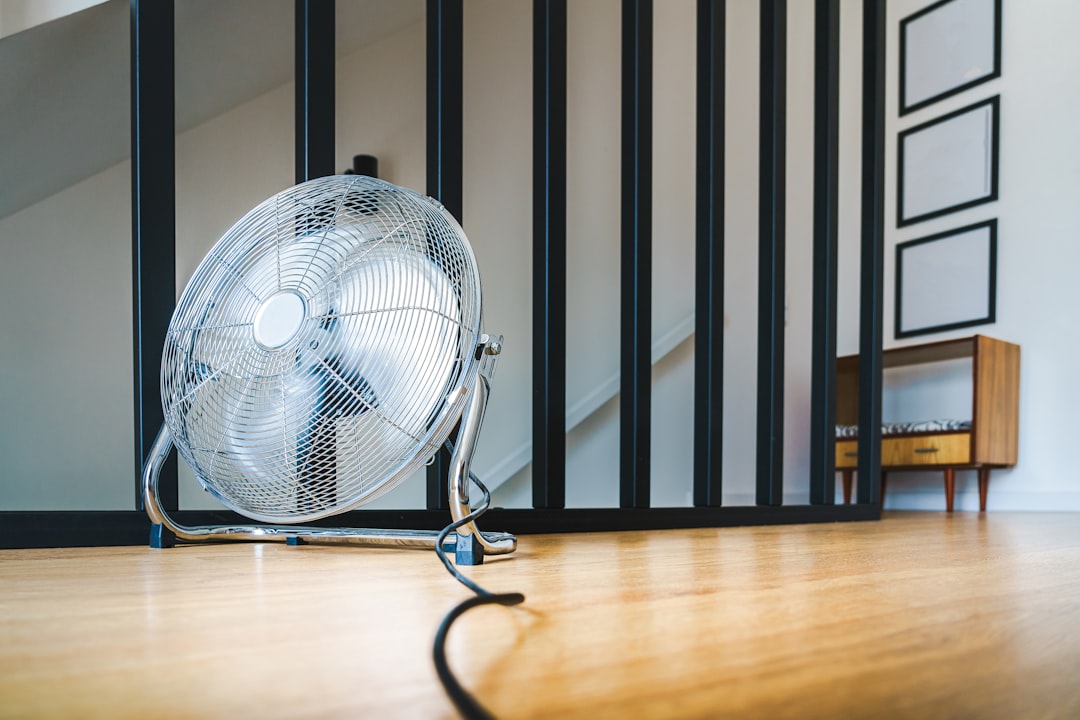
Revolutionize Your Home Cleaning Routine with Smart Appliances
Smart appliances are revolutionizing the way we clean our homes. These innovative devices are equipped with advanced technology that allows them to perform cleaning tasks more efficiently and effectively than traditional appliances. From smart vacuum cleaners to smart dishwashers, these appliances are designed to make our lives easier and our homes cleaner.
Smart appliances are defined as household appliances that are connected to the internet and can be controlled remotely through a smartphone or other smart devices. They are equipped with sensors, cameras, and artificial intelligence that enable them to perform tasks autonomously or with minimal human intervention. These appliances can be programmed to clean at specific times, adjust their settings based on the environment, and even learn from their users’ preferences.
Key Takeaways
- Smart appliances for home cleaning offer convenience and efficiency
- Benefits of using smart appliances include time-saving, energy-saving, and sustainable cleaning
- Smart vacuum cleaners are the future of cleaning with features like voice control and mapping technology
- Smart mops provide an ultimate solution for spotless floors with features like automatic water dispensing and self-cleaning
- Smart dishwashers save time and energy with features like load sensing and delay start options
Benefits of Using Smart Appliances for Home Cleaning
There are several benefits to using smart appliances for home cleaning. Firstly, they offer convenience and time-saving. With smart appliances, you can schedule cleaning tasks to be done automatically, even when you’re not at home. This means you can come back to a clean house without having to spend time and effort on cleaning yourself.
Secondly, smart appliances offer improved cleaning performance. They are equipped with advanced sensors and technology that allow them to detect dirt and adjust their cleaning settings accordingly. This ensures a thorough and efficient cleaning process, leaving your home spotless.
Thirdly, smart appliances are energy-efficient. They are designed to consume less energy compared to traditional appliances, which helps reduce your energy bills and minimize your carbon footprint. Additionally, many smart appliances have energy-saving features such as automatic shut-off and power management systems.
Lastly, using smart appliances can lead to cost savings in the long run. While the initial cost of these appliances may be higher than traditional ones, their energy efficiency and improved performance can result in lower maintenance and operating costs over time.
Smart Vacuum Cleaners: The Future of Cleaning
Smart vacuum cleaners are one of the most popular smart appliances for home cleaning. These devices are equipped with advanced features that make cleaning your floors a breeze. They can navigate through your home, detect obstacles, and adjust their cleaning settings based on the type of flooring.
Some popular smart vacuum cleaners include the Roomba by iRobot, the Roborock S6, and the Dyson 360 Eye. These devices are equipped with sensors and cameras that allow them to map your home and create a cleaning schedule. They can also be controlled remotely through a smartphone app, allowing you to start or stop cleaning even when you’re not at home.
Smart vacuum cleaners work by using a combination of sensors, cameras, and artificial intelligence. They navigate through your home using sensors to detect obstacles and avoid them. They also use cameras to map your home and create a cleaning schedule. The artificial intelligence algorithms in these devices allow them to learn from their environment and adjust their cleaning settings accordingly.
Smart Mops: The Ultimate Solution for Spotless Floors
| Product Name | Smart Mops: The Ultimate Solution for Spotless Floors |
|---|---|
| Features | Easy to use, Reusable, Durable, Eco-friendly, Cleans all types of floors |
| Dimensions | 12 x 5 x 2 inches |
| Weight | 0.5 lbs |
| Material | Microfiber cloth, Plastic handle |
| Usage | For daily cleaning of floors, Suitable for homes and offices |
| Price | 19.99 |
Smart mops are another innovative solution for keeping your floors clean. These devices are designed to mop and scrub your floors without any manual effort. They are equipped with advanced features such as water tanks, rotating brushes, and sensors that allow them to clean different types of flooring effectively.
Some popular smart mops include the iRobot Braava Jet m6, the Ecovacs Deebot Ozmo T8 AIVI, and the Roborock S7. These devices can be programmed to mop specific areas or entire rooms, and they can even detect carpeted areas and avoid them.
Smart mops work by spraying water or cleaning solution onto the floor and then using rotating brushes or mopping pads to scrub away dirt and grime. They can detect obstacles and adjust their cleaning settings accordingly to ensure a thorough and efficient cleaning process.
Smart Dishwashers: The Ultimate Time-Saver
Smart dishwashers are a game-changer when it comes to cleaning your dishes. These appliances are equipped with advanced features that make dishwashing a breeze. They can be programmed to start and stop at specific times, adjust their settings based on the load size and dirtiness of the dishes, and even notify you when the cycle is complete.
Some popular smart dishwashers include the Bosch 800 Series, the Samsung DW80R9950UT, and the LG LDT6809SS. These devices are equipped with sensors that detect the dirtiness of the dishes and adjust the water temperature and pressure accordingly. They can also be controlled remotely through a smartphone app, allowing you to start or stop a cycle even when you’re not at home.
Smart dishwashers work by spraying water onto the dishes and using detergent to remove dirt and grime. They can detect the load size and adjust their settings accordingly to ensure a thorough cleaning process. Some smart dishwashers also have features such as steam cleaning and sanitizing cycles for extra cleanliness.
Smart Laundry Machines: The Perfect Solution for Busy Homes

Smart laundry machines are designed to make doing laundry easier and more efficient. These appliances are equipped with advanced features that allow them to detect the type of fabric, adjust the water temperature and cycle length accordingly, and even notify you when the laundry is done.
Some popular smart laundry machines include the Samsung WF45R6300AV washer and DVE45R6300V dryer, the LG WM9000HVA washer and DLEX9000V dryer, and the Whirlpool WFW9620HC washer and WED9620HC dryer. These devices can be controlled remotely through a smartphone app, allowing you to start or stop a cycle even when you’re not at home.
Smart laundry machines work by using sensors to detect the type of fabric and adjust the water temperature, cycle length, and spin speed accordingly. They can also detect the load size and adjust the water level and detergent amount accordingly. Some smart laundry machines also have features such as steam cleaning and allergen removal for extra cleanliness.
How Smart Appliances Can Save You Money on Your Energy Bills
One of the major benefits of using smart appliances is their energy-saving features, which can help reduce your energy bills. These appliances are designed to consume less energy compared to traditional appliances, resulting in cost savings in the long run.
Smart appliances are equipped with features such as automatic shut-off, power management systems, and energy-efficient components. For example, smart vacuum cleaners have sensors that detect when the cleaning is complete and automatically shut off to conserve energy. Smart dishwashers have sensors that detect the load size and adjust the water temperature and pressure accordingly, reducing energy consumption.
Some examples of energy-efficient smart appliances include the Energy Star certified models, which meet strict energy efficiency guidelines set by the U.S. Environmental Protection Agency. These appliances are designed to consume less energy without sacrificing performance.
By using smart appliances, you can reduce your energy consumption and lower your energy bills. This not only saves you money but also helps reduce your carbon footprint and contribute to a more sustainable future.
Smart Appliances and the Environment: A Sustainable Cleaning Solution
In addition to saving you money on your energy bills, smart appliances also have environmental benefits. These appliances are designed to be more eco-friendly compared to traditional appliances, helping reduce their environmental impact.
Smart appliances are equipped with features such as energy-saving modes, water-saving settings, and eco-friendly materials. For example, smart vacuum cleaners have sensors that detect when the cleaning is complete and automatically shut off to conserve energy. Smart dishwashers have sensors that detect the load size and adjust the water usage accordingly, reducing water waste.
Some examples of eco-friendly smart appliances include those made from recycled materials or those that use environmentally friendly cleaning solutions. These appliances are designed to minimize their environmental impact throughout their lifecycle, from production to disposal.
By using smart appliances, you can contribute to a more sustainable future by reducing your energy and water consumption and minimizing waste.
How to Choose the Right Smart Appliances for Your Home
When choosing smart appliances for your home, there are several factors to consider. Firstly, you should consider the specific cleaning tasks you need the appliance to perform. For example, if you have a large carpeted area, a smart vacuum cleaner with strong suction power and carpet detection feature would be ideal. If you have a lot of dishes to wash, a smart dishwasher with adjustable racks and multiple cleaning cycles would be beneficial.
Secondly, you should consider the size and layout of your home. Some smart appliances are better suited for smaller spaces, while others are designed for larger homes. It’s important to choose an appliance that can effectively clean your entire home without any limitations.
Thirdly, you should consider the connectivity options and compatibility with other smart devices. Most smart appliances can be controlled remotely through a smartphone app, but some may also have voice control capabilities or integration with other smart home systems. It’s important to choose an appliance that fits seamlessly into your existing smart home ecosystem.
Lastly, you should consider your budget and the long-term cost of owning the appliance. While smart appliances may have a higher upfront cost compared to traditional appliances, they can result in cost savings in the long run due to their energy efficiency and improved performance. It’s important to choose an appliance that offers the best value for your money.
The Future of Home Cleaning: The Rise of Smart Appliances
The future of home cleaning is undoubtedly centered around smart appliances. As technology continues to advance, we can expect even more innovative features and capabilities in these devices.
One trend in smart appliance technology is the integration of artificial intelligence and machine learning. This allows appliances to learn from their users’ preferences and adjust their settings accordingly. For example, a smart vacuum cleaner can learn the layout of your home and create a more efficient cleaning schedule over time.
Another trend is the development of smart appliances that can communicate with each other and work together to perform cleaning tasks. For example, a smart vacuum cleaner can communicate with a smart mop to ensure a thorough cleaning of your floors. This integration of different smart appliances will further enhance the cleaning process and make it more seamless.
In the future, we can also expect smart appliances to become more sustainable and eco-friendly. Manufacturers are increasingly using recycled materials and developing energy-saving features to reduce their environmental impact. We can also expect more advanced water-saving features and eco-friendly cleaning solutions in smart appliances.
Overall, the future of home cleaning is bright with the rise of smart appliances. These innovative devices offer convenience, improved performance, energy efficiency, and cost savings. As technology continues to advance, we can expect even more exciting features and capabilities in these devices, making our lives easier and our homes cleaner.
FAQs
What are smart appliances for home cleaning?
Smart appliances for home cleaning are devices that use advanced technology to make cleaning tasks easier and more efficient. These appliances can be controlled remotely through a smartphone app or voice commands, and they can perform tasks such as vacuuming, mopping, and dusting.
What are the benefits of using smart appliances for home cleaning?
The benefits of using smart appliances for home cleaning include saving time and effort, improving cleaning efficiency, and reducing the need for manual labor. These appliances can also help to improve indoor air quality by removing dust and allergens from the home.
What types of smart appliances are available for home cleaning?
There are several types of smart appliances available for home cleaning, including robotic vacuums, robotic mops, smart air purifiers, and smart dustbins. These appliances can be controlled through a smartphone app or voice commands, and they can be programmed to perform specific cleaning tasks at specific times.
How do smart appliances for home cleaning work?
Smart appliances for home cleaning use advanced sensors and algorithms to navigate through the home and perform cleaning tasks. Robotic vacuums and mops use sensors to detect obstacles and map out the layout of the home, while smart air purifiers use sensors to detect pollutants in the air and adjust their settings accordingly.
Are smart appliances for home cleaning expensive?
Smart appliances for home cleaning can be more expensive than traditional cleaning appliances, but the cost can vary depending on the type of appliance and the brand. However, the long-term benefits of using smart appliances, such as improved cleaning efficiency and reduced manual labor, can outweigh the initial cost.


















